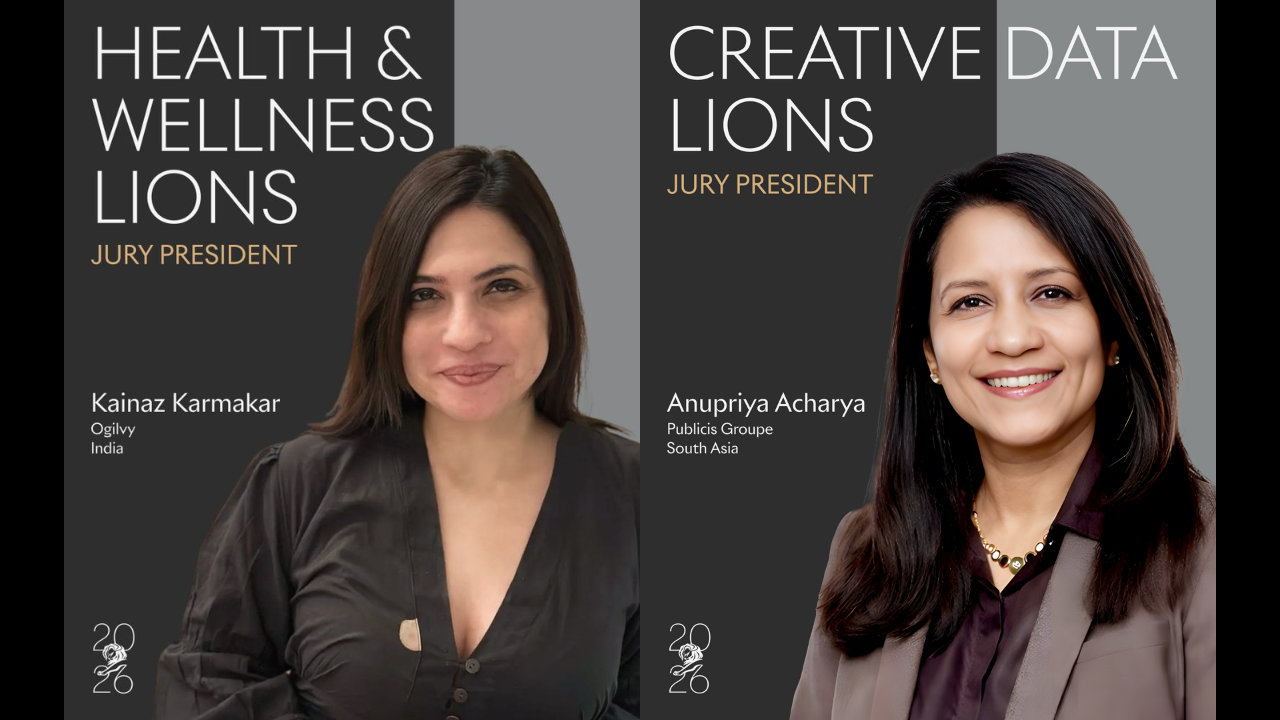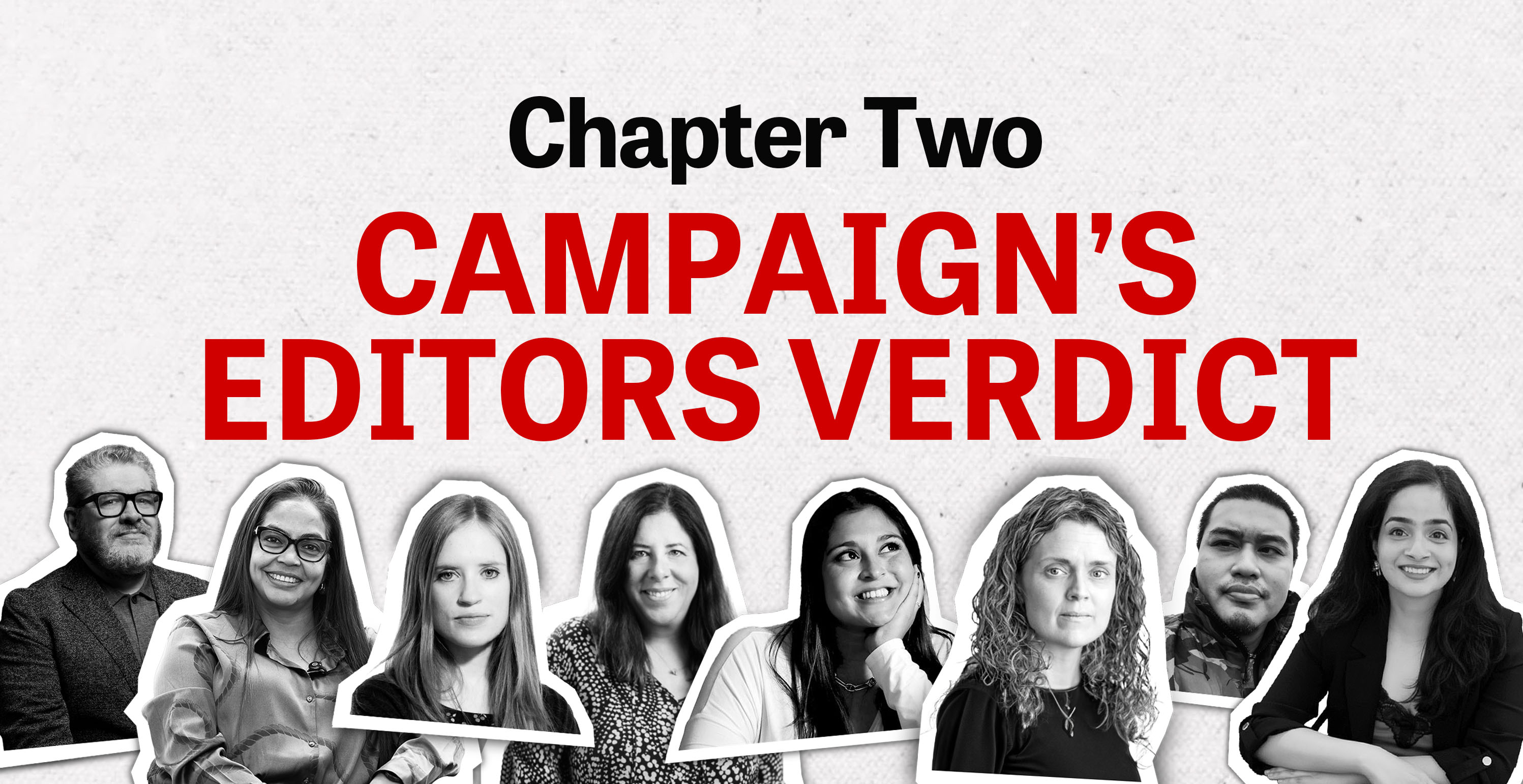Often seen as the benchmark for creativity, this year’s Cannes Lions should have been one to remember, returning as a physical event with more than 25,000 entries.
This year’s celebrations will be remembered, no doubt, but not for the reason that winning agencies would have liked.
Former Cannes Lion winner Gustav Martner set the tone at the opening ceremony as he stormed the stage and gave back his award, then held up a sign reading: “No awards on a dead planet. Ban fossil ads!”
This was only the beginning. Later in the week, Greenpeace protestors paddled in canoes to invade WPP's rented beach next to the Croissette. After that, they scaled the Palais conference centre and unfurled a banner declaring: "Fossil fuel ads are burning the planet."
WPP’s clients include BP and Shell, and chief executive Mark Read defended the network’s relationship with energy clients, saying: “Energy companies have to be part of the solution as much as anybody else.”
Network groups and agencies are awash with sustainability initiatives, with those such as WPP, Publicis, Dentsu, and Omnicom Media Group signed up to Ad Net Zero. At the festival, though, agencies were faced directly with the opposition and the potential consequences of facilitating energy companies.
So where does this leave them? Did employees perhaps leave the festival with a guilty conscience? Or were they galvanised to prove that energy companies are part of the solution to climate change?
Campaign asked members of adland for their perspective.
 John Brown
John Brown
Founder, Don't Cry Wolf
There will always be an agency willing to sacrifice its moral compass for the sake of a few quid. However, the tide is beginning to turn for three key reasons. The first is that the climate crisis message is starting to get through, thanks to the likes of Greenpeace, Creatives for Climate and a heap of other essential pressure groups and collectives.
The second reason is that attracting the best talent is as much about having the right ethics as it is about having the right pay cheque. As CV pools run dry, agencies must reflect on whether their client list is a deterrent.
Lastly, as society demands greater transparency, creative leaders must come clean about their work rather than bleat on about their plastic-free breakout rooms and Birkenstock recycling schemes. It will take a special kind of arse to submit a Cannes Lions award entry focused on sustainability while reporting a chunk of income from oil and gas.
 Ete Davies
Ete Davies
EMEA chief operating officer of Dentsu Creative
Activists have a role to play in raising awareness. But, as an industry, we need to face up to our role and the opportunity we have to change the story. We are seeing increasing scrutiny from clients who have set net zero targets and are passionately committed to this agenda. And from our people who are choosing to work for organisations that are committed to driving positive impact.
Objectively, much of the Cannes agenda was already dominated by discussions about sustainability and commitments to actionable plans to reduce our industry's negative environmental impact, across its entire value chain. At Dentsu this is a board-level priority. We are one of the first companies in the world to have our net zero target approved by the Science Based Target initiative. Many of our peers followed suit with public (and real) commitments to becoming net zero and to science-based targets.
There’s clearly a challenge for agencies that have made such commitments, yet continue to service fossil fuel clients, to balance these two positions – especially given recent focus on "advertised emissions" – in other words, the impact of the campaigns that we run. I can only assume that agencies in such a situation are either having those challenging conversations or, as we are at Dentsu, focusing their engagements on supporting those clients or business units that are making the pivot to "clean energy".
 Nikki Cunningham
Nikki Cunningham
Managing director, Curious
Greenpeace’s protest certainly got us talking. They were the most "in your face" but definitely not the only voice on sustainability as expected, with a vast majority of speakers using their platform to voice concerns. Though I can’t help but wonder how many of the execs who trot out the well-worn mantra about "being part of the journey of change" as an excuse for their fossil fuel partnerships actually believe what they are saying.
So will the Greenpeace protests at Cannes stop agencies working with fossil fuel clients by itself? The short answer is no, but we, as an industry, should be actively engaging with the conversation above and beyond well practised platitudes. At some point in the future – I hope the near future – fossil fuels will follow the same path as tobacco. After all, when was the last time you saw an agency proudly flaunting a Marlboro logo?
 Xavier Rees
Xavier Rees
Chief executive, Havas London
If you’ve got a burning (no pun intended) desire to work with fossil fuel clients, a few protests probably aren’t going to stop you. Not that that means the protests aren’t worthwhile – it’s an important conversation and one we need to have.
If that’s the case, what might give you pause for thought is when your access to the best talent – who increasingly care about this stuff – dries up.
And if that doesn’t stop you, more and more clients electing not to work with you might. I’m not just talking about those brands founded on sustainable principles – big, global players are increasingly mindful of the issue, have a point of view and want to work with like-minded partners. Regardless of the wider considerations, you might find fossil fuel clients end up costing you more than they’re worth.
 Melanie Welsh
Melanie Welsh
Founding partner, Strat House
Greenpeace’s protest was certainly memorable, and they aren’t alone in their stance. Sustainability was a major theme at Cannes Lions, with many speakers from brands and advertisers given the platform to raise similar concerns. The Greenpeace protests, added to the conversation and sharpened the comments.
This isn’t the first time the industry has received pressure from climate activists. Groups that will really turn heads are those that are working directly with and alongside the industry. Clean Creatives is probably the most well-known organisation galvanising people within the industry to change and their message is more likely to resonate with "creative greenwashers" – as they come from a communication background themselves. Then, the industry can choose to listen – or not.
Ultimately, the Greenpeace protest alone isn’t likely to revolutionise the industry. Instead, the pattern of more and more advertisers backing out, and the wider conversation around industry responsibility can create positive change.
 Stephen Woodford
Stephen Woodford
Chief executive, Advertising Association
No, I don’t think it will stop agencies working with fossil fuel clients – but every company has the right and option to choose the clients they represent. Like them or not, these are essential businesses to the functioning of our economy and society, with the right to buy professional services of all kinds, not just those from the advertising sector.
I do think, however, that these protests will rightly put ever more focus on the type of work produced for advertisers in the energy sector. This work must be fair, accurate and properly representative of the efforts they are making to address climate change.
At the same time, it is important we listen to all voices in the climate debate to drive the change needed worldwide, and this includes how energy companies must rapidly transition their businesses to support a low carbon economy.
(This article first appeared on www.CampaignLive.co.uk)




